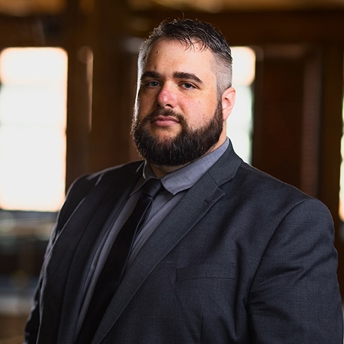
Your Maine Boat Accident Attorneys
Seeking Justice After a Boating Accident: How Berman and Simmons Can Help You
Most people don’t think about the chances of the worst-case scenario when they take an afternoon for recreational boating. In most cases, it ends with a sunburn at worst, but if you have experienced a boat accident, you know it can be one of the scariest experiences of your life. You may be eligible for compensation if you have been injured in a boating accident because of someone else’s negligence.
At Berman and Simmons, we are dedicated to fighting for your rights to compensation. Our personal injury attorneys have recovered nearly $40 million for hurting families in the last six months alone. You don’t have to manage this alone.
Boating Accident Vessels
A boating accident can involve the collision or capsizing of any watercraft, defined by Maine law as vessels used to transport people over water, excluding seaplanes. These include sculls, sailboats, yachts, motorboats, fishing boats, charter vessels, and jet skis. Regardless of the vessel type, venturing into open water always carries risks. The U.S. Coast Guard (USCG) reported 564 boating fatalities in the most recent year. Most accidents occurred with open water boats or personal watercraft, but kayaks and canoes had the highest percentage of fatalities.
The causes of a boating accident are very similar to the causes of any other kind of accident, and they vary significantly depending on the situation. Some of the commonly seen causes are:
- Lack of driver education
- Inexperienced driver
- Intoxicated driver
- Wake in a no-wake zone
- Overcrowding
- Improper loading
- Mechanical failure
- Excessive speed
The recreational boating statistics report states that about 33% of accidents had drivers with no boating education. However, around 32% of the total accidents reported unknown education levels, so the number could be higher. The next highest contributing factor included drivers who were intoxicated. The Maine boating laws document tells us that it takes about one-third of the amount of alcohol that causes legal intoxication on land and has the same effect in the water.
Boating laws in Maine do not provide the same generalized right-of-way rules as motor vehicle laws, making water navigation confusing at times. However, specific guidelines dictate yielding situations, such as giving way to anchored, disabled, or commercially fishing watercraft, and sailboats under sail unless overtaking. When two watercraft approach head-on, each should steer right to pass on the port side. If approaching at right angles, the craft on the starboard side has the right of way.
Maine law also mandates that operators maintain a lookout at all times to observe their surroundings. Additionally, certain behaviors are prohibited, such as unsafe operation, anchoring in navigational pathways, or blocking access to facilities, piers, or wharfs. Alcohol consumption laws for boat operators mirror those for motor vehicles, ensuring safety on the water.
Injuries from boating accidents are often unique and severe. While many injuries occur when passengers fall into the water, significant harm can also happen onboard. Common injuries include broken bones, lacerations, amputations, traumatic brain injuries, spinal cord injuries, ischemic brain injuries, electrocution, drowning, and even death. Drowning remains the leading cause of death, often due to exhaustion, intoxication, or inability to swim. Having lifejackets or flotation devices for all passengers can significantly reduce fatalities.
These injuries often require extensive medical care, including surgeries and long-term rehabilitation like physical therapy. The resulting medical bills and lost income from time off work can create substantial financial burdens. In severe cases, injuries may limit your ability to perform your current job or restrict career opportunities in your field, making compensation essential for recovery and stability.
- Intrusive Memories: Frequent, unwanted recollections of the accident that can disrupt daily life.
- Negative Changes in Thinking and Mood: Persistent sadness, hopelessness, or detachment from loved ones.
- Nightmares and Trouble Sleeping: Recurring distressing dreams and difficulty achieving restful sleep.
- Trouble Concentrating and Irritability: Difficulty focusing on tasks and heightened irritability or anger.
Do not hesitate to call us for a free case review. When you contact us for your case evaluation, you will be scheduled for a 15-minute intake appointment. During this time, a member of our team will gather details regarding your case to determine what resources we may have to help you. When we work with our clients, we do so on a contingency basis, meaning we do not accept payment from you unless we recover compensation for you.
When the Stakes are High, We Deliver Results
Our client reviews showcase the skills, advocacy, compassion, and work ethic we bring to every case to achieve the best results.
-
“Excellent! Navigated my complex case with ease, trauma informed, extremely knowledgeable! I’ll always be grateful for the support my family and I received.”- Amanda B.
-
“Chuck is hands down the best attorney. He was so kind and thoughtful throughout the whole process. The communication was amazing, and we couldn’t have asked for a better guy to be in our corner.”- Cassie G.
-
“Chris is an extremely bright and hard working attorney. He cares deeply about his clients and fights for them every step of the way.”- Hale M.
-
“Susan Faunce and Chris Boots were there for us every step of the way. They were always prepared, professional, quick to respond to our needs, and above all ~ it was evident that they truly cared for us, and for our situation.”- Kate K.
-
“Miriam Johnson is thorough, caring, smart, and dependable.”- David S.
-
“The professionalism, competence, and attention displayed by Elizabeth and her team made the traumatic head on collision we experienced this past year much more bearable.”- Lorraine M.

Meet Our Attorneys
As powerful advocates for civil justice, we fight tirelessly for our clients, winning high-stakes, complex cases, where our team’s expertise and unmatched skills make all the difference.
-
 Susan A. Faunce Managing Director, Shareholder
Susan A. Faunce Managing Director, Shareholder -
 Travis M. Brennan Attorney, Shareholder
Travis M. Brennan Attorney, Shareholder -
 Timothy M. Kenlan Attorney, Shareholder
Timothy M. Kenlan Attorney, Shareholder -
 Elizabeth A. Kayatta Attorney, Shareholder
Elizabeth A. Kayatta Attorney, Shareholder -
 Charles P. Hehmeyer Attorney, Shareholder
Charles P. Hehmeyer Attorney, Shareholder -
 Christopher C. Boots Attorney, Shareholder
Christopher C. Boots Attorney, Shareholder -
 Miriam A. Johnson Attorney
Miriam A. Johnson Attorney -
 Joseph G. Gousse Attorney
Joseph G. Gousse Attorney















